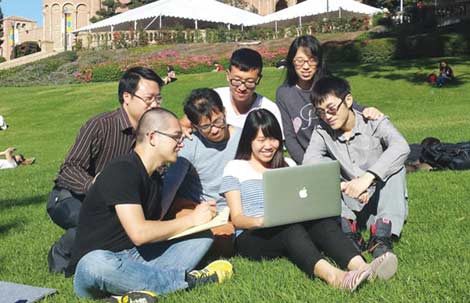Overhaul of anti-graft legislation on the way
Updated: 2014-10-29 07:43
By Zhang Yi(China Daily)
|
||||||||
Criminal law outdated and out of touch with realities, experts say
China will upgrade anti-corruption legislation as it continues a campaign to build a clean government and practice austerity.
Anti-graft laws will be introduced into national legislation to construct a better prevention and punishment system, said a key policy document from the Communist Party of China published on Tuesday.
The legal definition of "bribes" will not be limited to the current "money and goods". Instead, all "property interests" will be regarded as bribes in graft cases.
The decision on major issues concerning comprehensively advancing the rule of law was approved by the Fourth Plenary Session of the 18th CPC Central Committee last week.
Officials taking non-monetary presents are not subject to criminal charges under the current criminal law, while many graft officials defend themselves by claiming that the bribes they are accused of taking were gifts given by friends.
The legislation is likely to deem that accepting non-monetary gifts of a considerable amount would be punishable for all government officials.
Traditionally, people in China give friends gifts or red envelopes filled with cash on special occasions, such as weddings, holidays and birthdays. The amount of cash varies from a few hundred to thousands of yuan.
However, the gifts and red envelopes, which bear good wishes and provide financial assistance, have been used as a means of bribery. Luxury items, including Birkin handbags, Vacheron watches and Hermes belts, have become popular gifts for officials.
Current laws do not stipulate taking gifts and red envelopes by an official as a crime unless the behavior is proved to be related to the abuse of power. However, officials exploit this loophole by taking bribes under the guise of receiving "gifts" from friends.
Criminal laws now applied to corruption cases were drawn up years ago and have not kept pace with the changing realities in officialdom and lack the necessary precision, experts said.
Ma Junjun, a law professor at Guangdong Provincial Party School, said there is an urgent need to make progress in anti-graft legislation with a scientific approach to work out more effective laws that increase precision and practicality.
Legal expert Jiang Ping said legislative efforts on administrative procedures are also a key area to be improved. "Government jobs must be clearly defined by laws to ensure efficiency and honesty in public service. Laws to supervise government roles also have room for improvement," he said.
zhang_yi@chinadaily.com.cn
|
Session highlights |
|
The fourth plenary session of the 18th Central Committee of the Communist Party of China, held in Beijing last week, adopted decisions on "major issues concerning comprehensively advancing the rule of law." Here is a look at some of the decisions:
|
- Xinjiang publishes anti-terror brochures
- New accord on security sealed with Afghanistan
- President Xi encourages international cultural exchanges
- Premier Li: China willing to help Afghan infrastructure
- Chinese FM: China, Asia-Pacific become community of shared destiny
- Foreign minister remarks on possibility of China-Japan summit
Most Viewed
Editor's Picks

|

|

|

|

|

|
Today's Top News
Xinjiang publishes anti-terror brochures
SOHO endows $10m to Yale
Cook and Ma talk about partnership
Language a barrier to healthcare for Asian Americans
China businesses need innovation: VC
Security pact sealed with Afghanistan
Chinese-American runs for Maryland state Senate
Language now a barrier to healthcare
US Weekly

|

|















